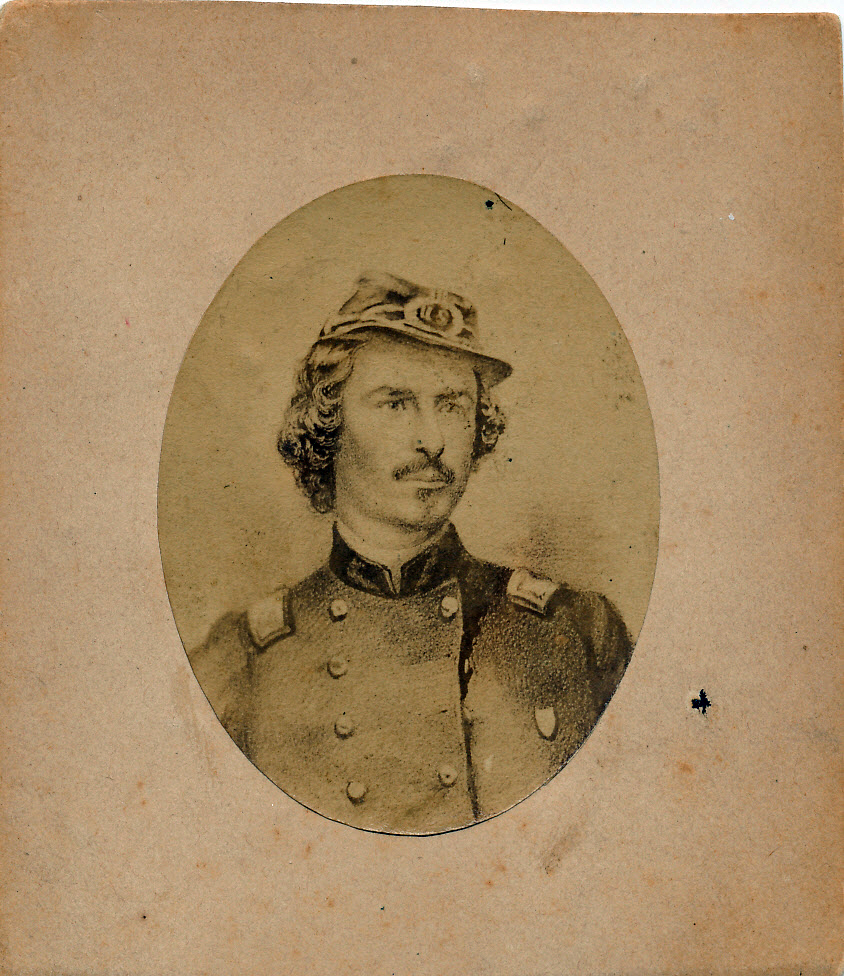The following is an excerpt from a letter written by John W. Stevens of South Danvers. He was an Orderly with the Fifth Regiment of Massachusetts Volunteers, Company C., under the command of Captain Robert S. Daniels, Jr. Stevens wrote this letter while stationed at Camp Pierson in Newbern, North Carolina. The letter is dated February 14th, 1863. In it Stevens talks of his daily routine at camp while waiting to be called to battle, but he also maintains an interest in the goings-on at home, such as his father’s business, and the welfare of a neighbor’s horse. Stevens survived the war and returned home to South Danvers. This letter was presented by Mrs. James Buxton of Peabody for the “Century Box,” a time capsule deposited in the Peabody Institute in 1902 and opened in 2002.
“Dear Father,
I was much pleased in receiving a letter from you and a good long one it was. I was glad to learn that you had to get to doing a little something in the yard again. I presume after you get started fairly you will not find any trouble in getting hides to tan or to buy some. Don’t it come hard to commence business again after laying by for so long a time! Don’t despair – a better day is coming. We must look ahead and hope for better times.
I understand that business is very good at home now. I should think that help would be scarce after so many have gone to war. Never mind, we will arrive in time to relieve some of our young men that are so very patriotic at home, and give them a chance to see the Elephant*, I think most of the boys that are here, will not be likely to take a second peep at him. It seems to be the general expression among officers and soldiers that after finishing their term of service will not again enlist. I presume it is the opinion of those at home that the soldiers here and other departments are very well contented with their lot.
I haven’t seen yet so hard times as I pictured in my imagination before enlisting although we have done our share since we came out here but are comfortably situated in camp now, and flatter ourselves that we shall not be called away from here again until our time expires. Yet we may be ordered away in a day for we don’t get much notice when we are wanted.
It is after taps now but I shall try to finish this letter tonight. Capt. Daniels is officer of the day and I am going the grand rounds with him tonight at 12-1/2 o’clock. As Sergt. of the same I go with him every time he is on. My duty is to answer the sentinel when he challenges us at 10 paces, and orders halt. “Who comes there.”! Answer: “Grand rounds advance Sergt. of the rounds and give the countersigned.” I advance to the point of his bayonet and whisper the countersign to him over the point of the bayonet. If correct, he says, “Advance rounds.”
Tell Mother that our Company is not in quite so bad a state of demoralization as is represented to her at home. There is some few who may be figuring pretty fine the days and hours of our time of service, but it doesn’t amount to anything. For one I would not accept of my discharge until our time has expired and go home honorably feeling that I have done all the government required of me.
I shall not be able to answer Charley’s letter this mail. Give my love to him and Susie. Also to Mother and Louisa and tell them to write often. Remember me to Uncle Ben and all inquiring friends. Tell Mr. Porter not to let the little mare get too lazy and too big a belly on her. Write often.
From your affectionate son,
John W. Stevens.”
* “Seeing the Elephant” was a euphemism for seeing active warfare and participating in a battle.

